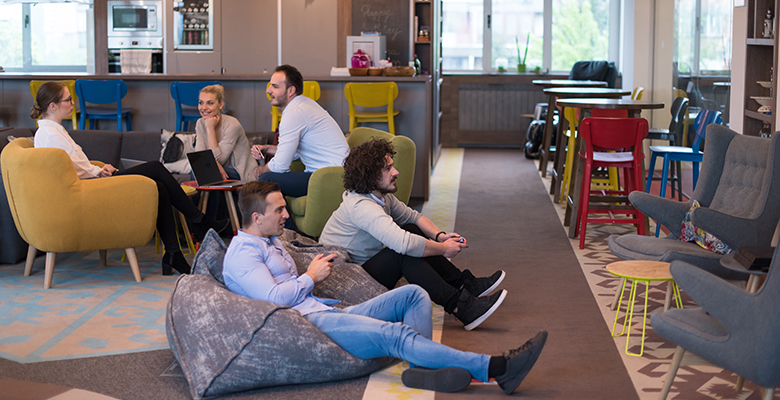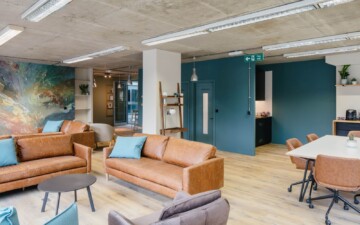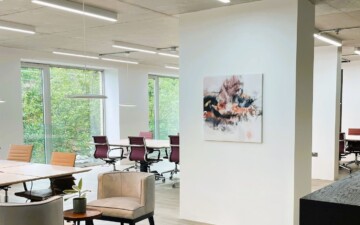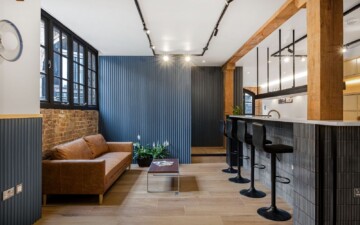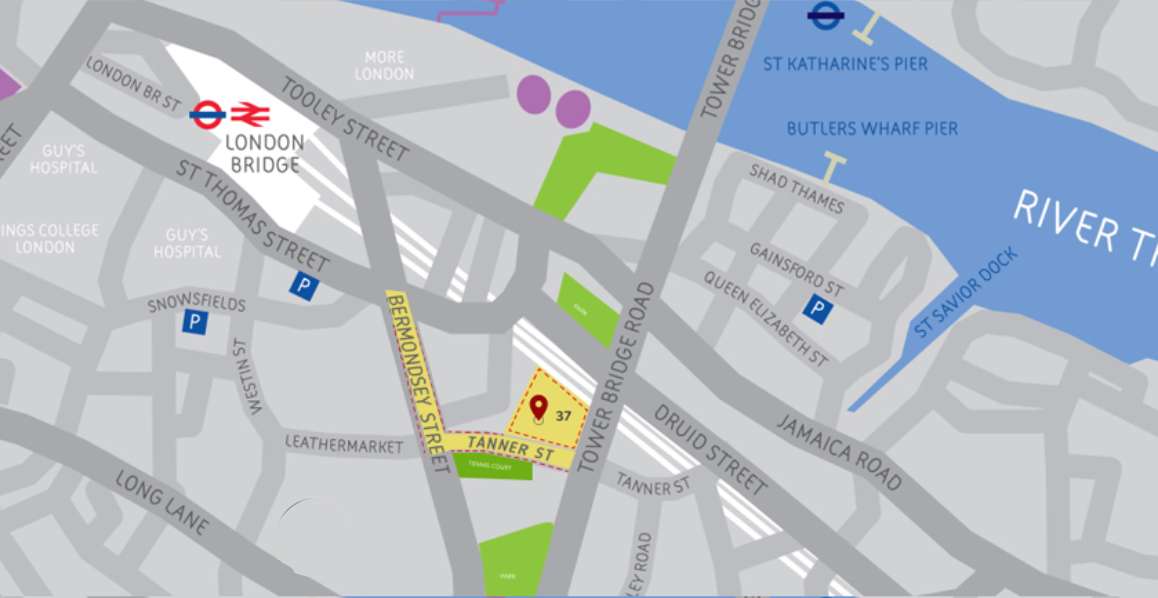London’s workplace culture used to run on packed calendars, long hours, and the belief that being always on was the only way to get ahead. That’s changed today. Post-pandemic, there is a newfound focus on well-being and a clear shift toward flexibility in work. Businesses have realised that employees who feel supported and connected work better, stay with the company longer, think clearer, and contribute more productively.
Work is no longer tied to one desk, one building, or one routine. The culture has evolved from rigid schedules and top-down structures to one of autonomy, collaboration, and balance. You see that change reflected in company policies and in the spaces people choose to work from.
We explore what’s driving this shift in London’s workplace culture and how it’s shaping trends in London’s workplace culture:
1. Hybrid Work Schedules
Workplace culture has evolved. What began as a temporary solution has now become a lasting norm, with hybrid work firmly established as a permanent fixture. Employees now expect the freedom to split their time between their homes and the offices, and employers are building that flexibility into their policies. This evolution has also changed how companies view their office spaces.
Instead of committing to owned properties or long-term leases, many businesses are turning to amenity-rich flexible workspaces and co-working hubs. These modern spaces offer high-tech amenities, meeting rooms, private booths, and reliable infrastructure without the overhead costs or rigidity of traditional work spaces.
2. Emphasis on Collaboration
While flexibility and remote work are convenient, in-person collaboration still holds its value. London’s workplace culture reflects this. Employers are no longer designing offices just for solo tasks; they’re also creating spaces that bring people together.
This has led to a rise in shared lounges, breakout zones, and on-demand meeting rooms. Instead of sitting in isolation, the new workplace culture requires that people come in to connect, and share ideas as a team.
3. Sustainability at the Workplace
Sustainability has become a priority in London’ workplace culture. Businesses are rethinking not just how they operate but also where they work from. There’s a growing interest in buildings with green certifications, energy-efficient systems, and designs that make the most of natural light and ventilation. The newer co-working and flexible office spaces in the city often meet these expectations by promoting shared resources and reducing unnecessary waste.
4. Shorter Work Weeks
The idea of a shorter work-week is gaining traction in London. With growing awareness around burnout and work-life balance, many professionals are questioning the traditional five-day model.
A recent report by Hays found that 51% of employees would switch their jobs if offered a four-day work-week. Companies that have introduced shorter weeks are seeing higher employee satisfaction rates and better focus and output.
With shorter work weeks, many businesses find that flexible offices and co-working spaces are more suited to their workplace culture, as they remove the burden of full-time occupancy. Rather than paying for a space that may remain unused for part of the week, companies can scale usage to match their team’s in-office days.
5. Diversity, Inclusion, and Autonomy
London’s workforce is diverse. It spans cultures, backgrounds, identities, and working styles. Today’s workplace culture is built around this diversity. Inclusion is part of how teams are structured, how spaces are designed, and how people are empowered to do their best work.
There’s also a stronger push for autonomy. Employees want more control over when, where, and how they work. That means fewer rigid schedules and more flexibility to choose environments that suit their needs.
6. Professional, Not Corporate
The days of ultra-formal office culture are fading. Professionals in London might still value structure, but they’re choosing environments that are more relaxed, and adaptable. So, instead of the cubicles of the past, flexible office spaces, meeting rooms, and shared zones are now becoming more common. These setups support focused work without feeling rigid, yet they offer a professional space required for client-facing interactions.
Final Thoughts
Workplace culture in London is no longer fixed desks and rigid routines. London’s work culture today is dynamic, and built around hybrid schedules, flexible hours, and a focus on employee well-being.
At Garden Office Bermondsey, office spaces and meeting rooms are designed for modern teams. You’ll find everything you need, from high-speed Wi-Fi, private booths, breakout zones, and interiors that balance productivity with ease. If your team needs a space that reflects London’s new workplace culture, schedule a visit to Garden Offices Bermondsey today.
